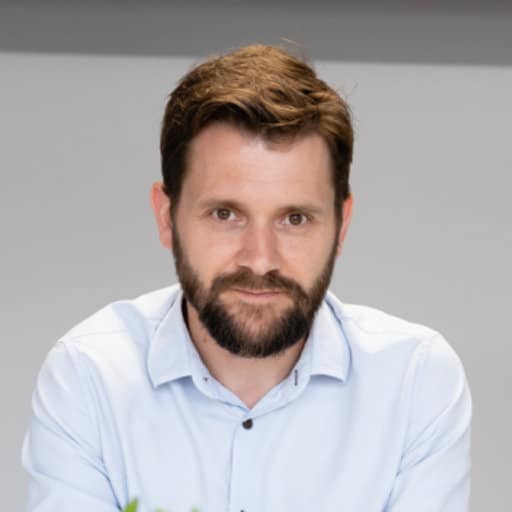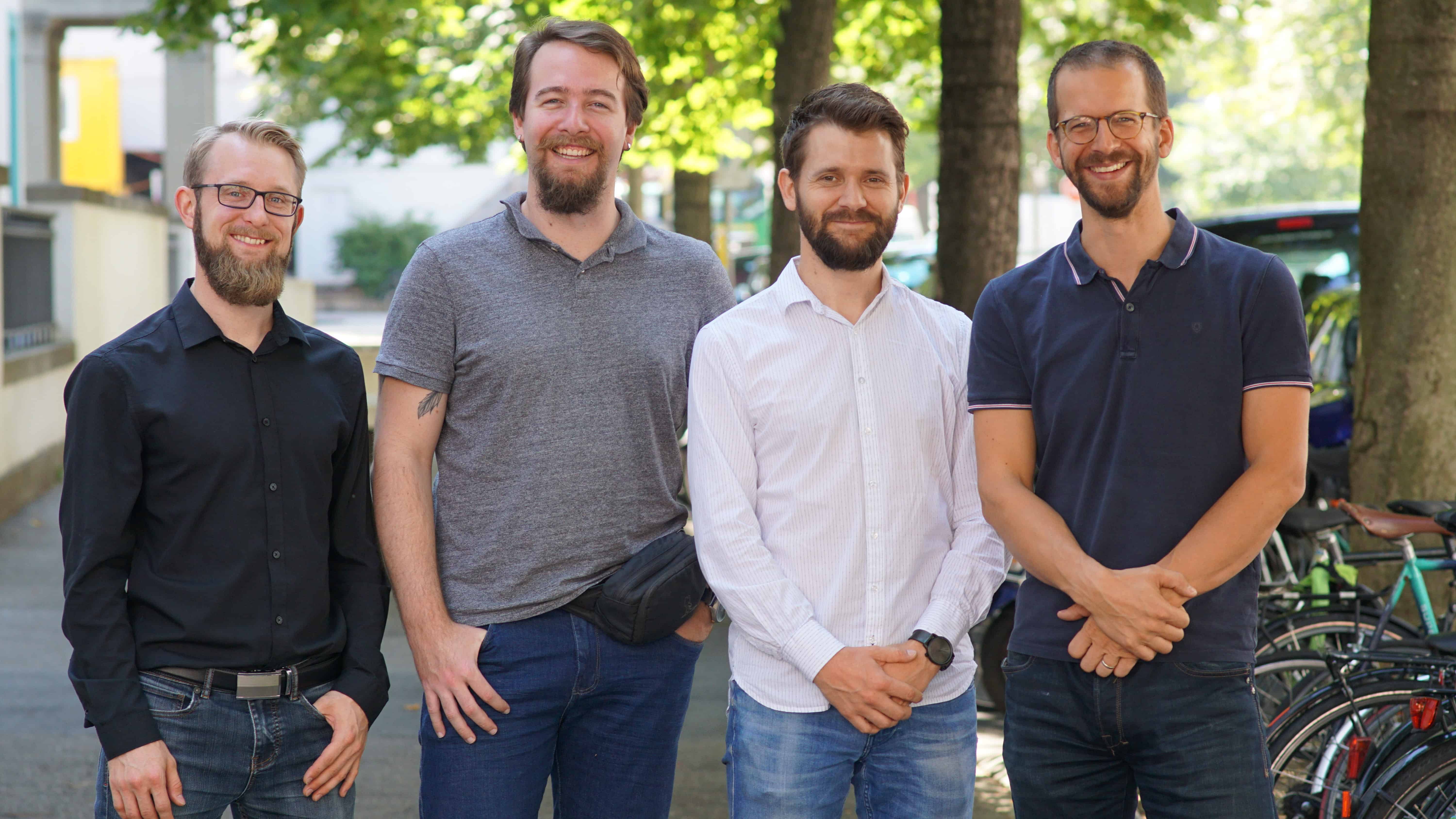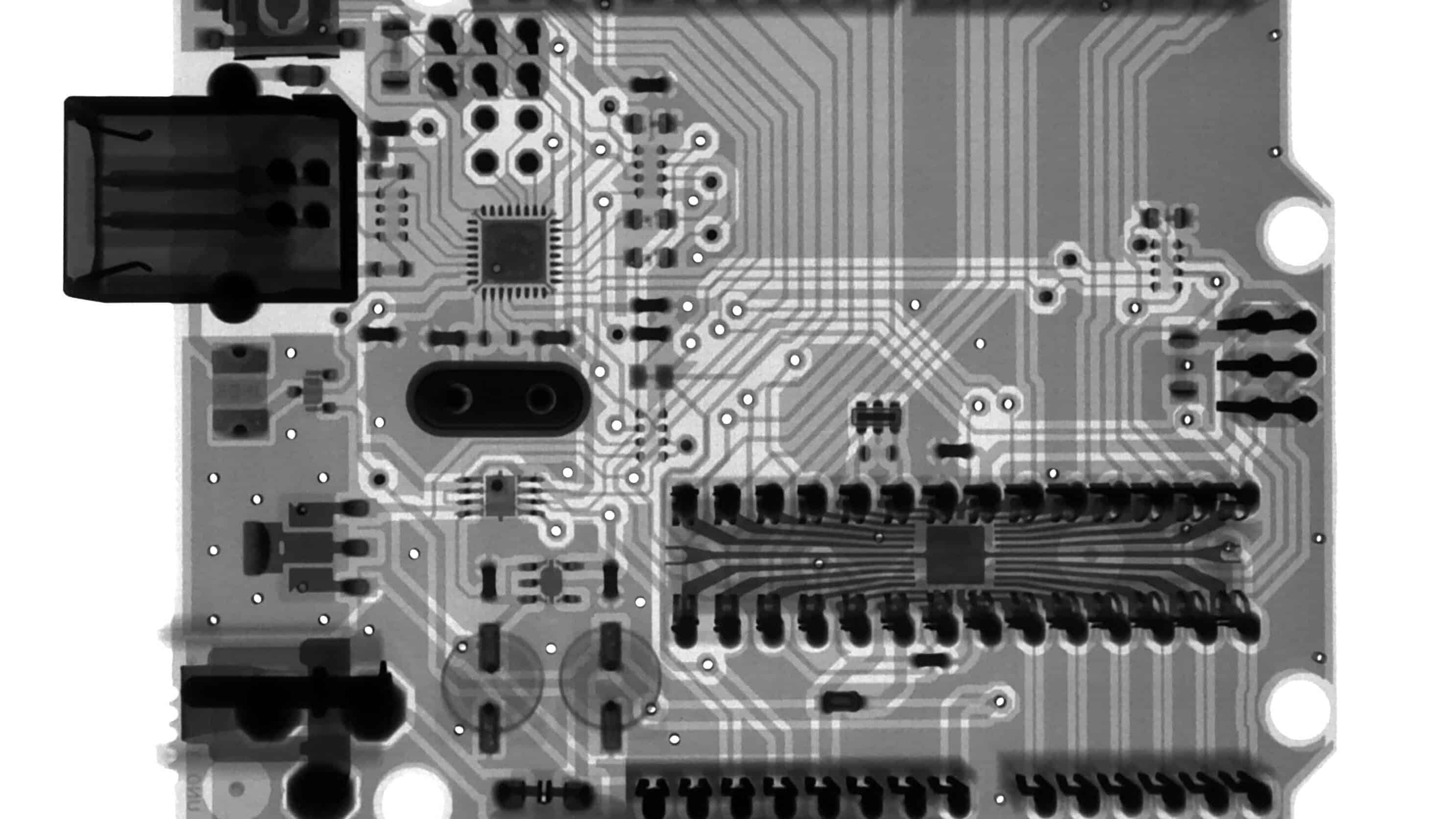Since we participated in Qnami’s Seed round in 2019, the company found its product-market fit and has achieved sales above CHF 1 million. Co-founder Mathieu Munsch sees a lot more applications for quantum sensing but also warns that investments are needed to bolster the nascent quantum industry.

co-founder and CEO of Qnami
Mathieu Munsch is co-founder and CEO of Qnami, a Swiss startup that has developed a fundamentally new quantum sensing technology. Mathieu has more than 15 years of experience in quantum technologies.
You worked as a postdoctoral researcher in the field of quantum technologies for several years before you co-founded Qnami. When did you decide that it is the right moment to become an entrepreneur?
The idea grew on me over the years. Quantum technology is clearly poised to change the world and the idea of combining science with the personal adventure of entrepreneurship seemed very attractive to me. The idea became tangible when I got to know my co-founder Prof. Patrick Maletinsky. In his labs, he was designing and producing tiny diamonds that enable big discoveries. Using a very innovative process he was producing quantum sensors that are able to measure the surface properties of materials with unprecedented details. His results quickly had a strong impact at an international level, which triggered many collaborations and the first indication that his innovation could have a much broader impact, beyond his own research group.
How did this initial idea evolve into the company Qnami?
It was clear that to provide value to potential clients, we needed to provide a full solution. We received grants from the QSIT program (Quantum Science and Technology) for a market assessment and geared up for the excellent Venture Kick program. At the end of this process, we had a clear picture of how to build our first product, a complete quantum microscope that would incorporate the original quantum sensor. At the time, we also brought the two other co-founders on board, bringing their own expertise after having completed their Ph.D. in Germany and Denmark. With that initial core team gathering all the key competencies we needed, we founded Qnami. That was in November 2017.
What did Qnami achieve since then?
In 2018, we defined how the team and product would look like and secured the IP. It was a lot of hardcore development, steered by our frequent discussions and tests with beta-testers and potential users. We got our first customers that year, who played a very important role in validating the technology. In 2019, we initiated a partnership with the Japanese precision instrument manufacturer Horiba (which was publicly announced only this year) and raised a CHF 2.6 million Seed round in which investiere participated. We started growing the team and launched the product ProteusQ – the first quantum microscope for the analysis of magnetic materials at the atomic scale – and sold the first unit just before closing the year. This year has been amazing. We shipped 2 more systems worth more than CHF 1 million in total and have 5 more orders in our backlogs, the result of a long time of lead generation. Together with our partner Horiba, we are now gearing up to ship tens of units in all parts of the world, and support the research and advanced materials.
“Great things can happen through the quantum revolution, and Qnami is meant to play an important role in this.”
Who are the typical customers that buy a quantum microscope?
The current version of the ProteusQ is designed for researchers and high-tech companies that look for new materials, test new devices and architectures for new electronics. But it doesn’t end there, we’re actively exploring new use cases for our technology right now.
Where can your technology be used other than in research?
Next-generation computers need to deliver on performance but also massively reduce their energy footprint. Two fields have emerged which carry great promise, spintronics, and quantum computing. Both technologies have witnessed a massive acceleration in the past years and are now being pushed into production by the tech giants of the planet. But getting to performant devices and high yield production remains a challenge, and we think we can help with that. These two technologies have, however, their specificities which is why we need to develop two new products.
The next funding is a Series A. What will the money you plan to raise enable Qnami to do?
The microscope ProteusQ is the backbone of our activities, but scaling doesn’t require large upfront investments from our side. To grow sales, we have a dedicated team working in collaboration with Horiba’s existing salesforce. Instead, we will invest these funds into the development of these two new market opportunities. Specifically, this will mean adding around half a dozen people to the team so that we can bring first solutions in these industries. The good thing is that the products we envision have a lot in common so that the activities in the different directions can benefit one another.
Quantum sensing is cutting-edge technology. How difficult is it to hire experts in that field?
So far we were lucky to find the people we needed. We hired very talented colleagues from Germany, Mexico, Brasil, the US, Lithuania, and of course Switzerland. We all share in common a certain idea of the society we want for the future, the desire to place humans at the center, and, of course, a passion for technology and quantum technology in particular. We know that great things can happen through the quantum revolution, and Qnami is meant to play an important role in this.
You’re also a member of the Quantum Flagship program, a European initiative to build a quantum ecosystem that represents total investments of EUR 1 billion. How well are Switzerland and Europe positioned in this technology of the future?
Switzerland has many good cards. With ID Quantique, we had one of the first quantum companies worldwide. There is a lot of excellent research in the IBM research lab in Rüeschlikon, at the CSEM, in the Swiss universities, and ETH launched the first Master in Quantum Engineering to train the next generation of talents. This is all very visible from the outside and certainly played a role in the success of our recruitment. But Switzerland risks falling behind! A huge number of quantum startups have been founded elsewhere in the past two years. Recently, the Swiss Science Council published a whitepaper that gives recommendations in regard to quantum technology. In my opinion, they are not enough.
What is lacking for quantum technologies to flourish?
Money. In order to profit from the excellent research that is done in Switzerland, there needs to be more investment to convert the results of excellent research into real applications, but so far this is lacking. The Swiss government doesn’t invest directly in this, the industry doesn’t either and venture capitalists only start to understand what the quantum revolution will bring. Germany has decided on a program that will pour EUR 2 billion into quantum computing. We need more startups to speak quantum and we need to build a functioning quantum ecosystem in Europe before it gets built elsewhere. But I’m optimistic. I do see people engaged, and helping to close the gap. I believe that a quantum industry is a promising future for Switzerland, matching well with its values of innovation, precision, and expert know-how.
Qnami Germany is part of the “Quantum Sensors of the Future” (QSENS) cluster, one of 7 clusters that the German Federal Ministry of Education and Research has chosen to support with EUR 450 million in total over the next 10 years. How will Qnami’s participation in QSENS benefit you?
The QSENS cluster aims to develop innovative quantum sensors for a wide range of applications, from quantum computing materials to personalized medicine to automated driving and information technology. By combining 20 industries and 6 universities and research institutes from Baden-Württemberg, the cluster will help build a regional quantum innovation ecosystem, significantly reducing barriers to entry for future uses of quantum technologies. This grant will allow us to hire a team and establish new R&D facilities in Stuttgart to enable close collaboration with academic and industry partners in QSENS and Germany.
Written by
WITH US, YOU CANCO-INVEST IN DEEP TECH STARTUPS

Verve's investor network
With annual investments of EUR 60-70 mio, we belong to the top 10% most active startup investors in Europe. We therefore get you into competitive financing rounds alongside other world-class venture capital funds.
We empower you to build your individual portfolio.
More News
20.07.2020
“We need to bring wealth to life”
The number of family offices, which safeguard wealth over generations, is on the rise, but young people today have a different relationship with money than their parents. In this interview, Carl Wieandt talks about the role of the family office and why they are keen to invest in startups.
15.11.2019
Qnami (Quantum Sensors): CHF 2.6 Seed round
Qnami has raised CHF 2.6 million from Quantonation, investiere, ZKB Starup Finance and High-Tech Gründerfonds. investiere contributed CHF 1 million to this round.
01.07.2019
“We need to explain what quantum technology is about”
Quantonation is the first venture capital fund dedicated to investment in quantum technology. Founder Christophe Jurczak explains when the different quantum technologies will be ready and why he invested in the Swiss startup Qnami.
Startups,Innovation andVenture Capital
Sign up to receive our regular newsletter and learn about investing in technologies that are changing the world.




